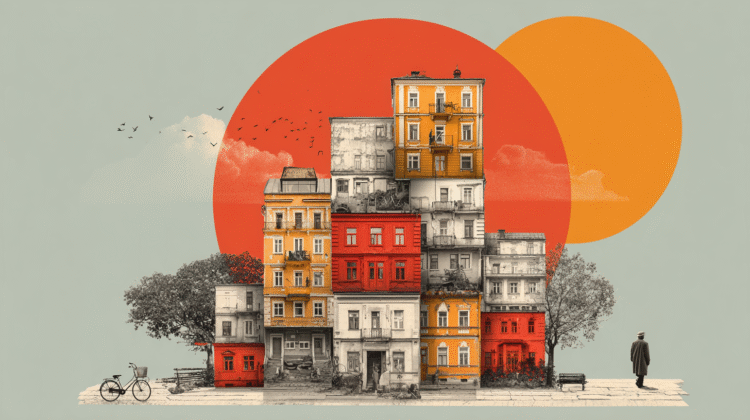Housing Crisis Threatens to Fracture Central and Eastern Europe
 A lack of affordable housing in urban centres is driving political instability across Central and Eastern Europe.
https://www.socialeurope.eu/housing-crisis-threatens-to-fracture-central-and-eastern-europe
A lack of affordable housing in urban centres is driving political instability across Central and Eastern Europe.
https://www.socialeurope.eu/housing-crisis-threatens-to-fracture-central-and-eastern-europe

The transition from communism brought new freedoms, increased mobility, a wider array of consumer goods, and economic growth to most countries in Central and Eastern Europe (CEE) following their integration with Western Europe. Yet, a crucial question remains: why the marked shift towards right-wing politics in recent elections and the emergence of “anti-establishment” movements, as championed by figures like Russia’s revanchist ideologue Alexander Dugin? The answer may lie in the deepening housing crisis.
Despite world-beating home ownership rates in CEE, generally exceeding 80 percent and often surpassing 90 percent in many states – for example, Romania (96 percent), Slovakia (94 percent), Croatia and Hungary (both 91 percent), Lithuania (88.8 percent), and Poland (87.3 percent) – these high averages obscure a critical imbalance. Ample housing exists in regions with few job opportunities, while select urban cores, offering robust work prospects, suffer from both a scarcity of housing and exorbitant prices.
Three decades of post-communist labour migration to low-quality work options abroad have left the working and middle classes in CEE increasingly frustrated. Securing well-paying employment or establishing thriving businesses today often necessitates relocation, which, in turn, means acquiring housing in these expensive urban markets. Romania exemplifies this paradox: despite having the EU’s highest home ownership rate at 95 percent, one might assume easy access to housing and political stability would not be concerns. Regrettably, this is not the case. The unexpected rise of populist Calin Georgescu last autumn, who was subsequently barred from running in the December 2024 presidential election, underscored widespread anxieties about the cost of living, swaying many Romanians towards his platform.
Consider Cluj-Napoca, Romania. Two decades ago, it was a quiet regional capital. Today, it is a hub for high-value-added manufacturing and information technology. Consequently, data from Numbeo, a global aggregator of housing price indicators, reveals that city centre housing prices per square metre in Cluj exceed those in Athens (EUR 3,215), Genoa (EUR 3,200), Portland (EUR 3,159), and Belfast (EUR 2,769). This reality deeply frustrates Romanians who aspire to find good work within their home country but cannot afford to relocate to these prohibitive urban centres.
snip

